Uvasaggaharam Stotra
This stotra (hymn, verse in praise of) is part of the nine holy recitations (nav smaran) in praise of the 23rd Tirthankar Pārśvanāth Bhagwān. It is believed to have been composed by Acharya Bhadrabāhu Swāmi around 350BC.
It is a Prakrit peom composed in Gāhā metre. In Sanskrit, a syllable can have one or two mātrās (an imaginary measurement of time taken to pronounce a syllable). The characteristic of the Gāhā metre is that if each verse is divided into four parts, then the first part should have 12 mātrās, the second 18 mātrās, the third 12 mātrās and the last part 15 mātrās.
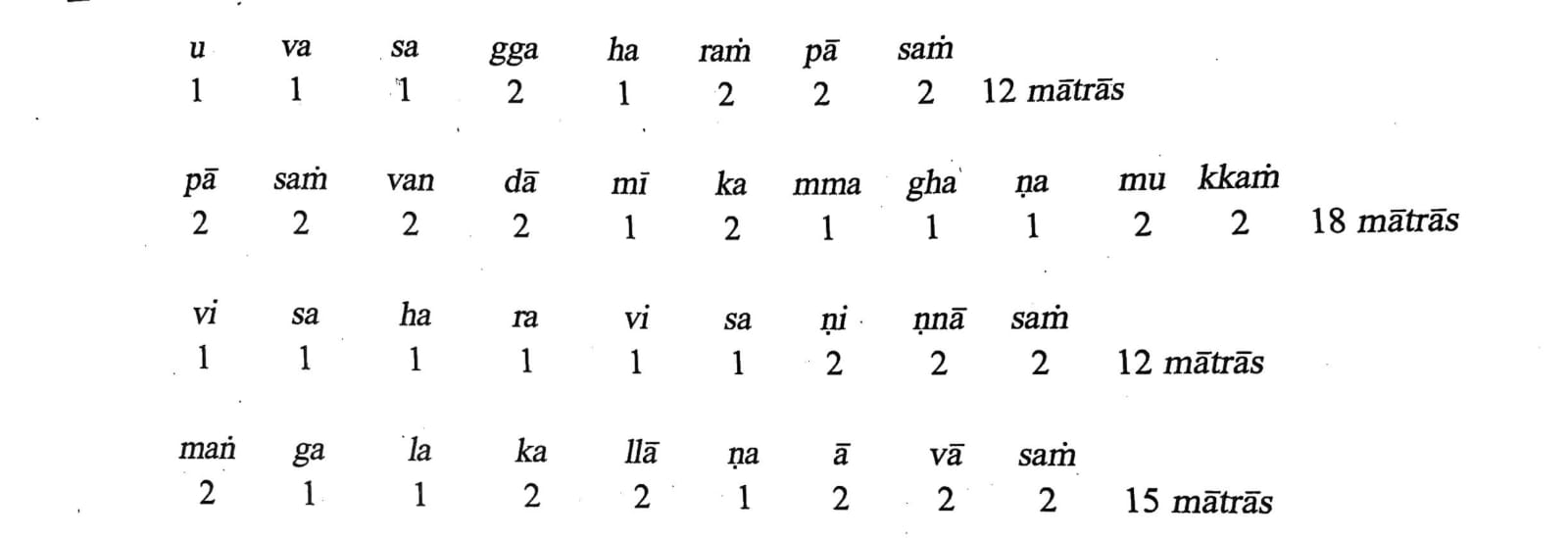

Uvasaggaharaṁ pāsaṁ
Pāsaṁ vandāmi kamma ghaṇa mukkaṁ
Visahara visa ṇiṇnāsaṁ
Maṇgala kallāṇa āvāsaṁ
उवसग्गहरं पासं, पासं वंदामि कम्मघण-मुक्कं
विसहर-विस-निन्नासं मंगल कल्लाण आवासं ।१।
“I worship Pārśvanāth Bhagwān:
– who has an attendant God (Yakṣa) called Pārśva (who is capable of removing all obstacles & misery)
– who has destroyed all intense karmas (or clouds of karma) or who is free from all karmas
– whose name itself is able to destroy the venom of the most venomous snake
– who is an abode of all that is auspicious”
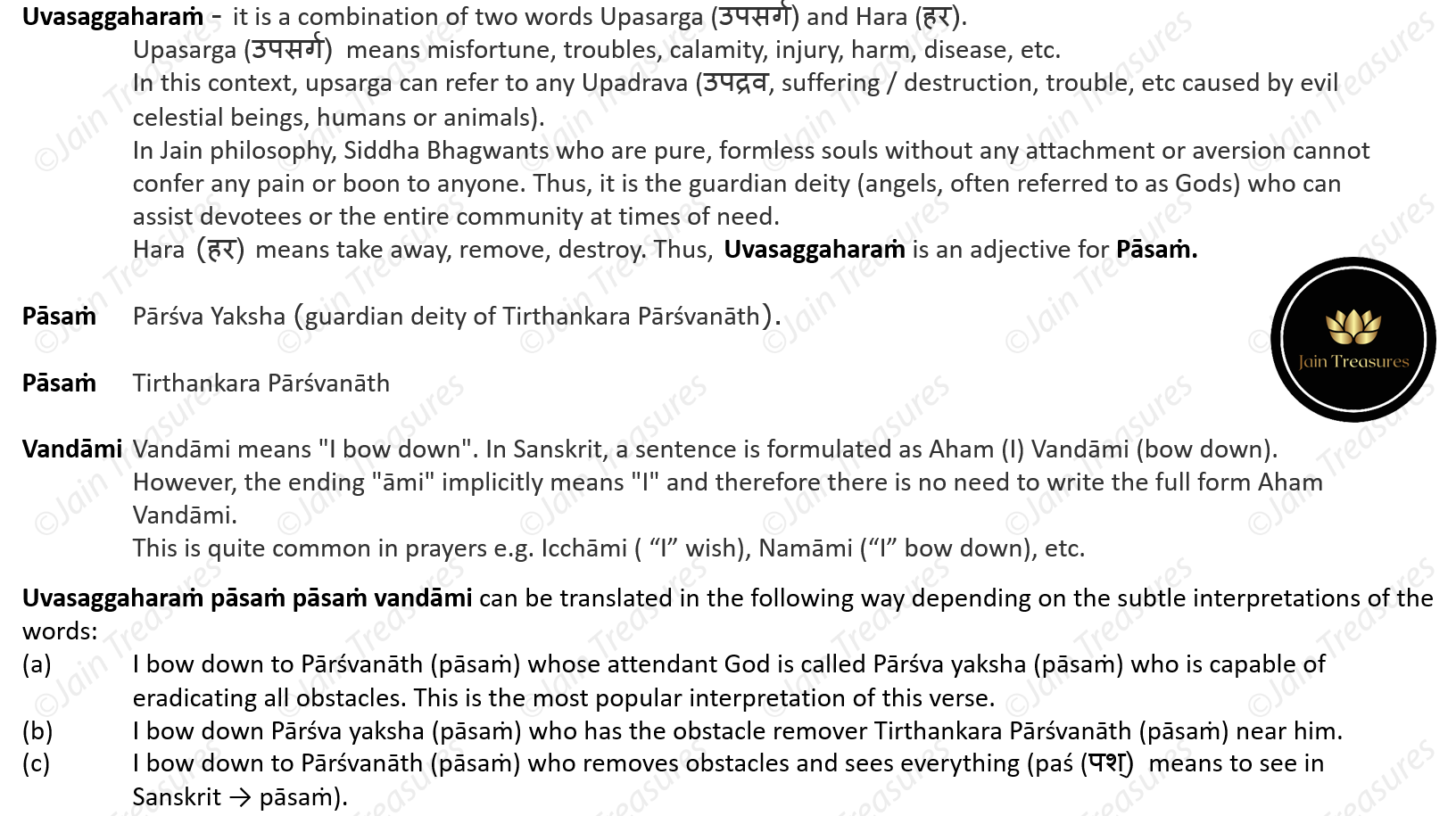
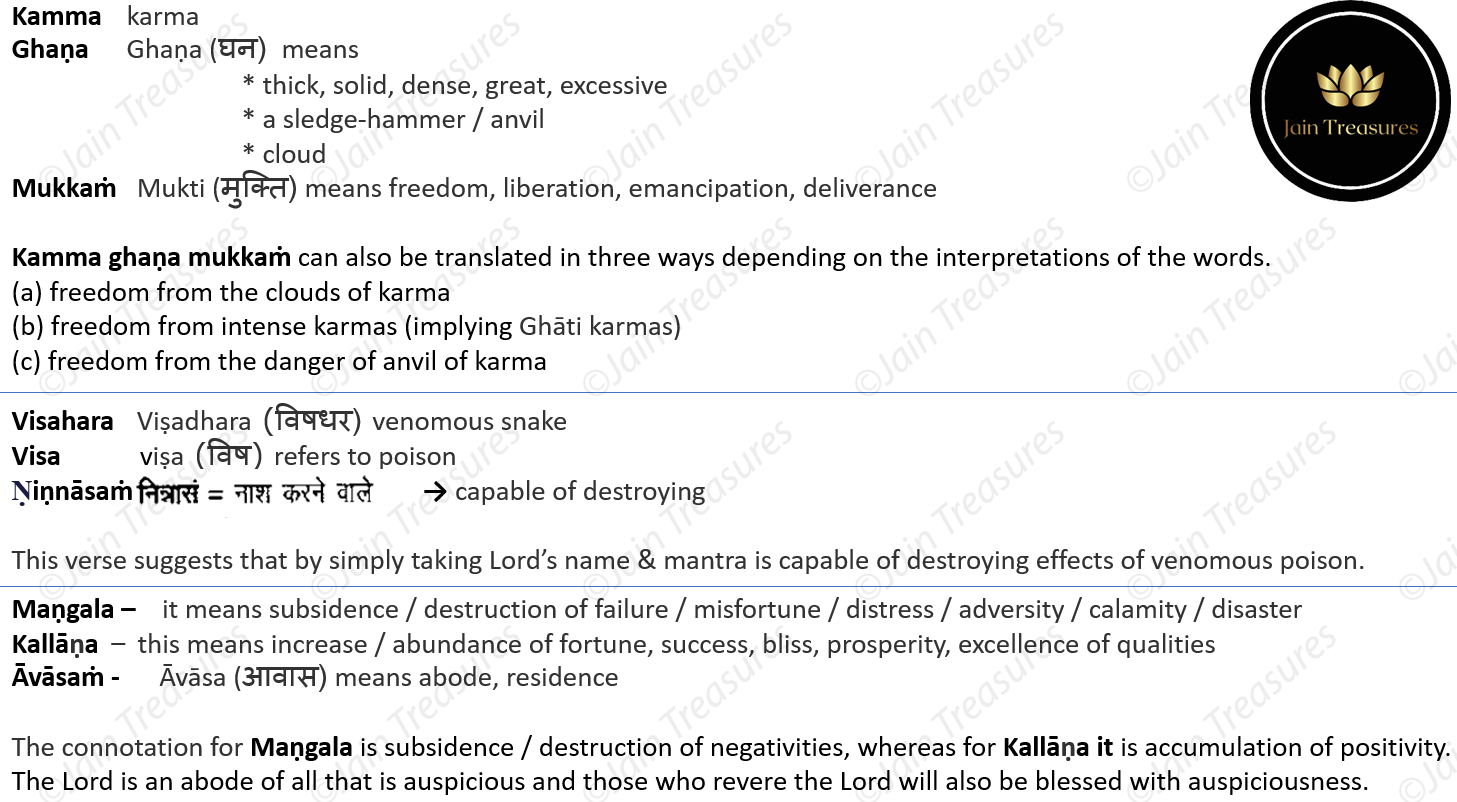
Visahara phullingamantaṁ
Kaṇṭhe dhārei jo sayā maṇuō
Tassa gaha rōga māree
Duṭṭha jarā janti uvasāmaṁ
विसहर-फुल्लिंगमंतं कंठे धारेइ जो सया मणुओ
तस्स गह रोग मारी, दुट्ठ जरा जंति उवसामं ।२।
Those who always remember the Visahara phullinga mantra their planetary misfortunes, fatal diseases, epidemics, deadly fevers will be pacified.
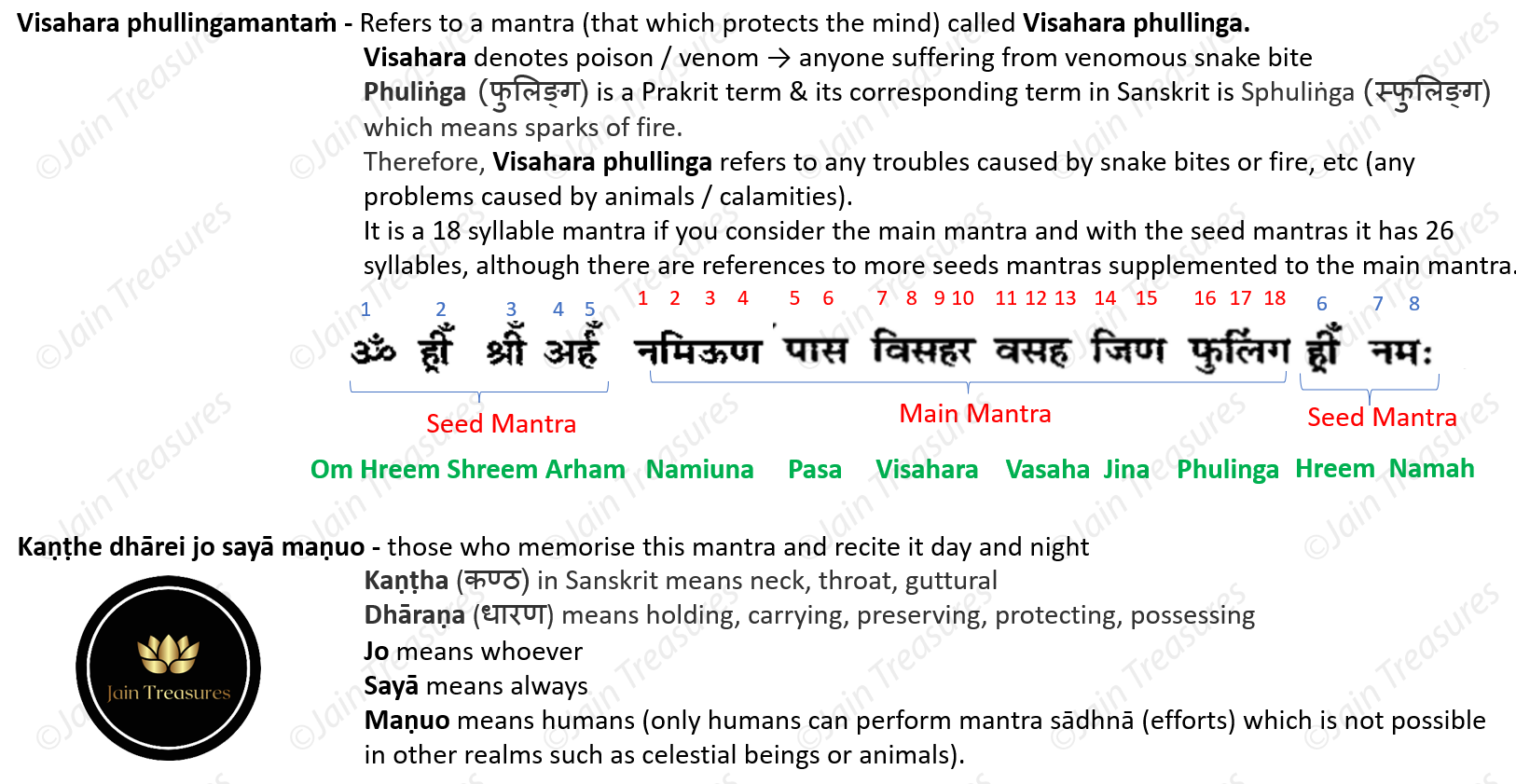


Ciṭṭhau Dūrē Mantō
Tujjha Paṇāmō Vi Bahuphalō Hōi
Naratiriēsu Vi Jīvā
Pāvanti Na Dukkhadōgaccaṃ
चिट्ठउ दूरे मंतो, तुज्झ पणामो वि बहुफलो होइ
नर तिरिएसु वि जीवा, पावंति न दुक्ख-दोगच्चं ।३।
Keeping the mantra away (aside), even obeisance to you will result in manifold fruits. Human beings and animals will not suffer from any miseries and fall into the lowest (sub-human) realms.
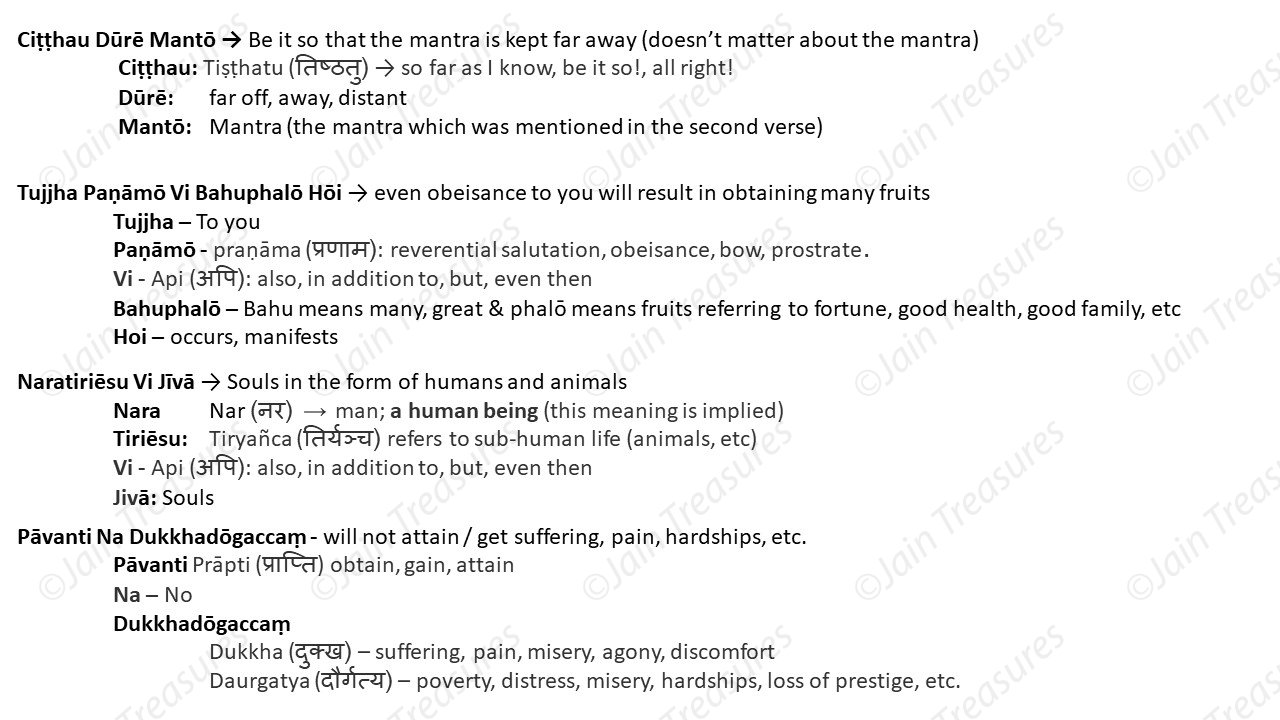
Some recite the last line as दुक्ख-दोहग्गं Dukkha Dohaggam (Dohaggam implies poverty).
Tuha Sammattē Laddhē
Chintāmaṇi kappapāya vabbhahiē
Pāvanti Aviggheṇaṃ
Jivā Ayarāmaraṃ Thāṇaṃ
तुह सम्मत्ते लद्धे चिंतामणि कप्प-पायव-ब्भहिए
पावंति अविग्घेणं जीवा अयरामरं ठाणं ।४।
Attaining right faith in your teachings is more potent (beneficial) than divine wish fulfilling gems and trees as it enables all souls to easily attain liberation (Siddha Shila which is an abode of all liberated souls where there is no decay, immortality).

Ia Santhuō Mahāyasa
Bhatti-bbhara-nibbharēṇa hiyaēṇa
Tā Dēva Dijjha Bōhiṃ
Bhavē Bhavē Pāsa Jiṇachaṇda
इह संथुओ महायस भत्तिब्भर निब्भरेण हिअएण
ता देव! दिज्झ बोहिं, भवे-भवे पास जिणचंद ।५।
Oh Greatly Renowned Lord, in this manner I have eulogised you with a heart full of devotion.
Therefore, Oh Lord you are like a moon among Jineśwarās, bestow upon me the seed of attaining perfect knowledge in reincarnation (until I achieve liberation).
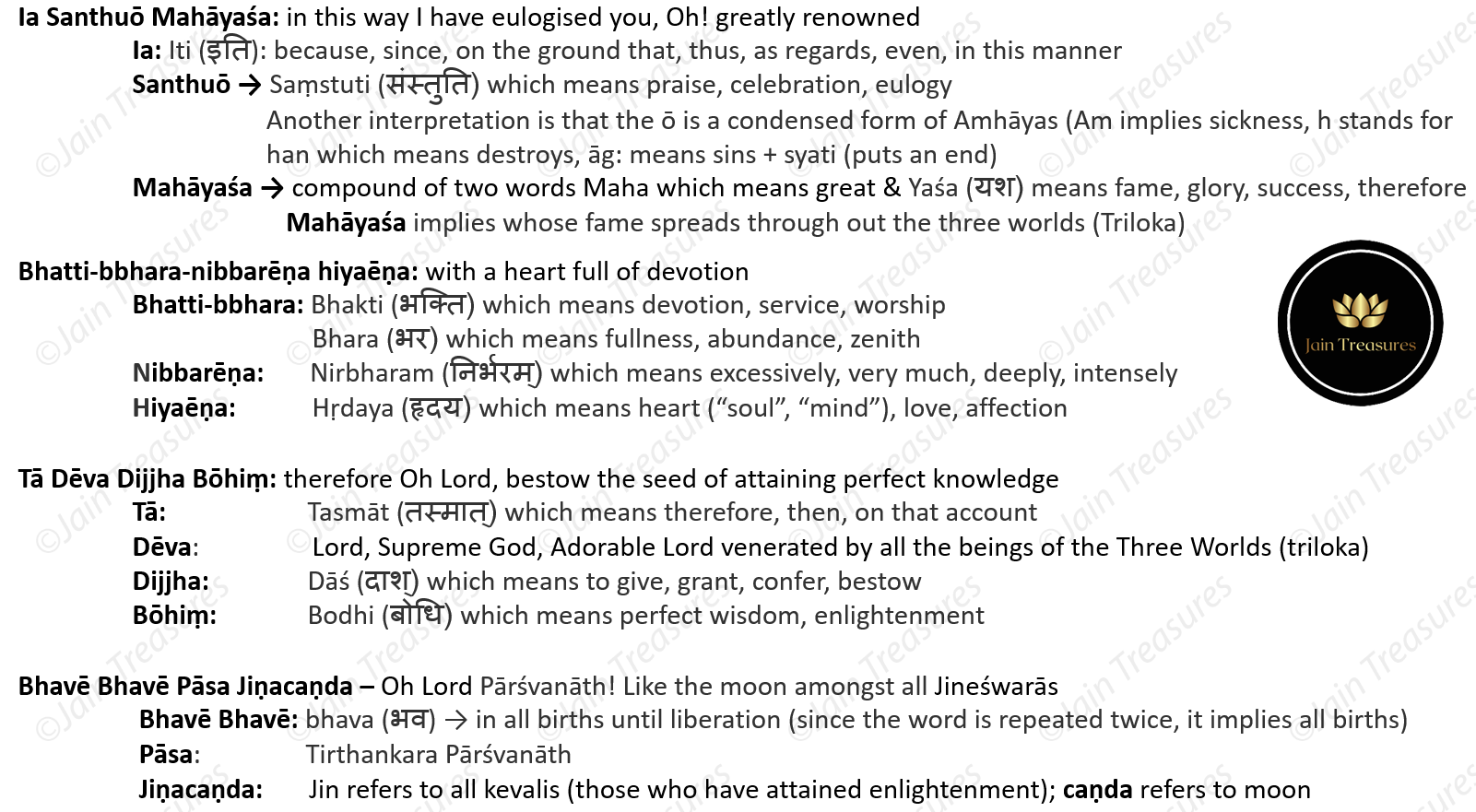
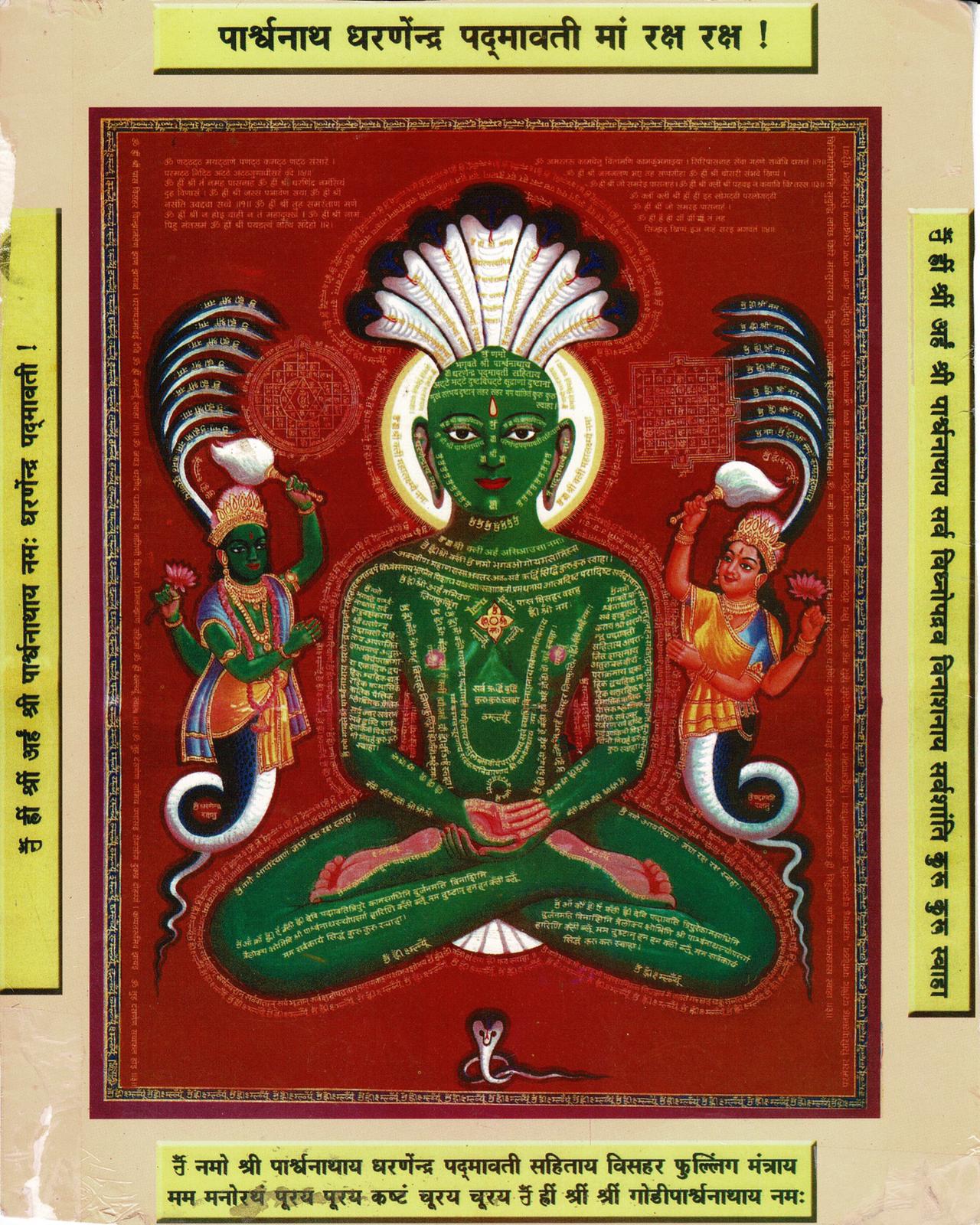
References
1. Prabodh Tika by Param Pujya Panyas BhadrankarVijayji Maharaj & Param Pujya Munishree Kalyanprabhavijayji Maharaj
2. Pratikramana Sutra With Explanation (Part 1) by Muni Nirvana Sagar
3. Nava Smaraṇa by Dr. Vinodbhai Kapashi
4. Internet
I apologise and seek pardon for any unintentional errors in translation of the verses.